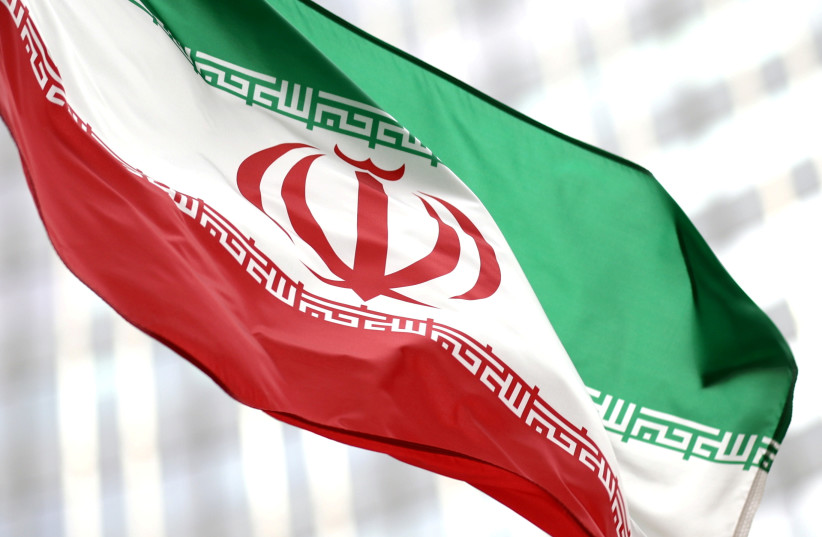The missile, called “Khaybar Shekan” (Khaybar buster), refers to a Jewish oasis called Khaybar that was overrun by Muslim warriors in the 7th century.
By REUTERS Published: FEBRUARY 9, 2022 10:11
Iran unveiled a new domestically-made missile with a range of 1,450 kilometers on Wednesday, state TV reported, a day after Tehran and Washington resumed indirect talks to salvage a 2015 nuclear deal.
Iran, which has one of the biggest missile programs in the Middle East, says its ballistic missiles have a range of up to 2,000 km (1,200 miles) and are capable of reaching its arch-foe Israel and US bases in the region.
State TV displayed the new surface-to-surface “Khaybar Shekan” (Khaybar buster) missile, which refers to an ancient Jewish oasis called Khaybar in the Arabian Peninsula’s Hijaz region that was overrun by Muslim warriors in the 7th century.
“This long-range missile is domestically manufactured by the Revolutionary Guards (IRGC)… It has high accuracy and is propelled by solid fuel and is capable of penetrating missile shields,” Iranian state media reported.
Tehran regards its missile program as an important deterrent against the United States, Israel and other adversaries. It has rejected Western demands to halt its ballistic missile work.
“Iran will continue advancing its ballistic missile program,” Iran’s armed forces chief of staff Maj.-Gen. Mohammad Bagheri told a ceremony at an IRGC base where the new missile was displayed, Iranian media reported.
Iranian flag flies in front of the UN office building, housing IAEA headquarters, amid the coronavirus disease (COVID-19) pandemic, in Vienna, Austria, May 24, 2021. (credit: LISI NIESNER/ REUTERS)
Iranian flag flies in front of the UN office building, housing IAEA headquarters, amid the coronavirus disease (COVID-19) pandemic, in Vienna, Austria, May 24, 2021. (credit: LISI NIESNER/ REUTERS)
NUCLEAR DEAL
Sunni Muslim Saudi Arabia, a regional rival of Shi’ite-led Iran, has repeatedly called on major powers to address Gulf Arab concerns about Tehran’s missiles.
Israel, which the Islamic Republic does not recognize, has long threatened military action against Iran if the talks in Vienna fail to curb Tehran’s nuclear work. Iran says its nuclear ambitions are peaceful.
In 2018, then-US president Donald Trump withdrew from the nuclear deal – designed to stop Iran developing a nuclear weapon – and reimposed sanctions in a bid to force Tehran into talks on a broader agreement that would have also addressed its ballistic missile program and support for proxies in the Middle East.
Iran responded a year later by gradually breaching the pact’s nuclear limits, rebuilding stockpiles of enriched uranium, refining it to higher fissile purity and installing advanced centrifuges to speed up output.
Indirect talks between Tehran and Washington to revive the deal started after Joe Biden replaced Trump in the White House, but despite eight rounds since April differences remain between Iran and world powers.
Tehran and Washington have blamed each other for the lack of progress.
“Voices from the US government show there is no coherence in that country to make political decisions in the direction of advancing the Vienna talks,” Iran’s top security official Ali Shamkhani tweeted on Wednesday.
Content retrieved from: https://www.jpost.com/breaking-news/article-695939.
